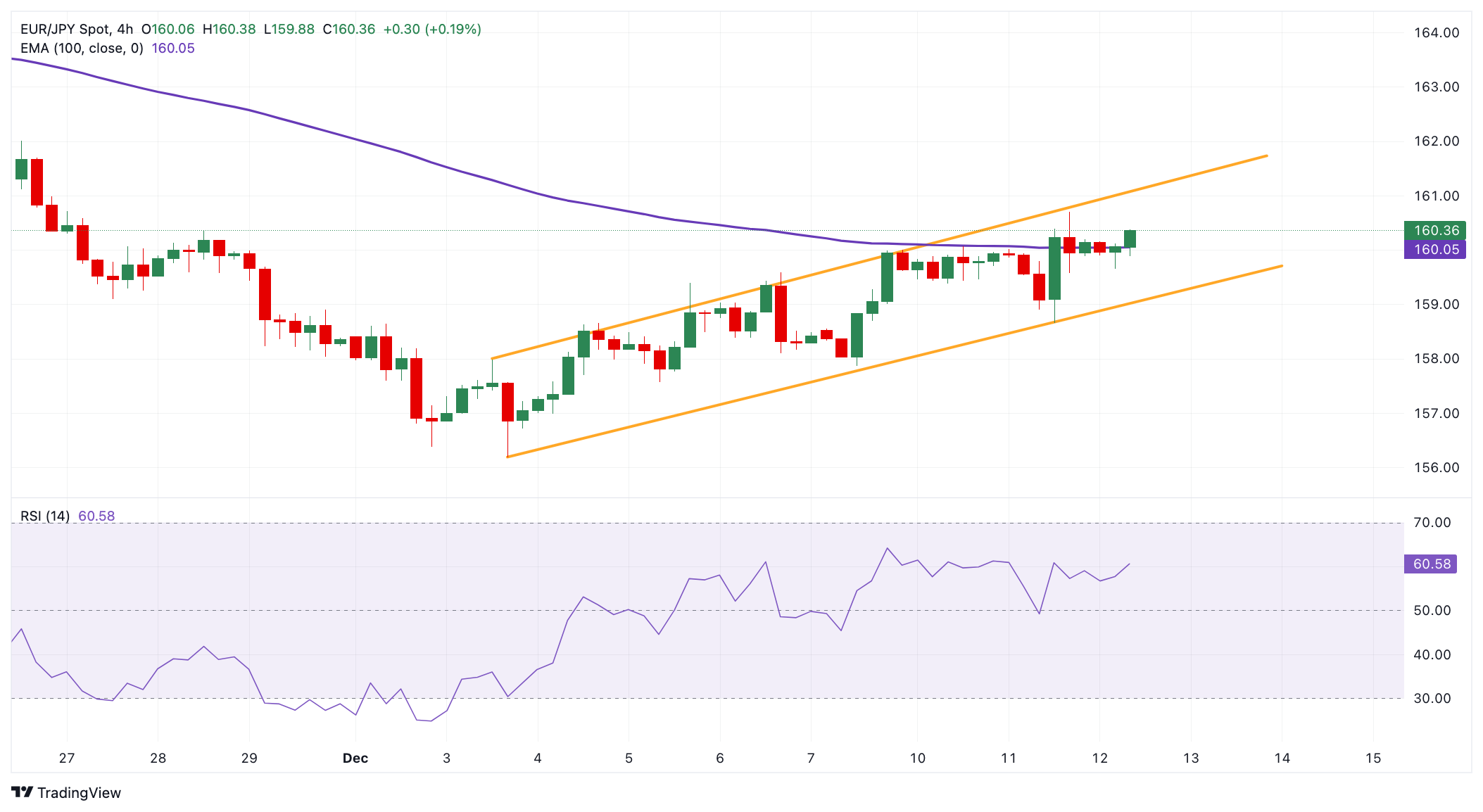EUR/JPY Price Forecast: Resumes uptrend within ascending trend channel above 160.00
- EUR/JPY extends the rally to near 160.35 in Thursday’s early European session, adding 0.15% on the day.
- The cross resumes an uptrend above the key 100-period EMA with the bullish RSI indicator.
- The immediate resistance level is located at 160.70; the crucial support level emerges at the 160.00 psychological level.
The EUR/JPY cross trades in positive territory for the fourth consecutive day around 160.35 during the early European session on Thursday. The Japanese Yen (JPY) weakens after Reuters reported on Thursday that the Bank of Japan (BoJ) is considering keeping interest rates steady at its December meeting next week. A source said, “Policymakers prefer to spend more time scrutinising overseas risks and clues on next year's wage outlook.” Later on Thursday, investors will closely monitor the European Central Bank (ECB) interest rate decision.
Technically, EUR/JPY resumes its uptrend on the 4-hour chart as the price crosses above the key 100-period Exponential Moving Average (EMA). The upward momentum is supported by the Relative Strength Index (RSI), which stands above the midline near 59.45, supporting the buyers in the near term.
The first upside barrier for the cross emerges at 160.70, the high of December 11. Sustained trading above this level could pave the way to 161.10, the upper boundary of the ascending trend channel. The next potential resistance level is seen at 162.00, representing the high of November 26 and the round figure.
On the other hand, a breach of the 160.00 psychological level could drag the cross lower to 159.10, the lower limit of the trend channel. Any follow-through selling below the mentioned level could see a drop to 158.65, the low of December 11.
EUR/JPY 4-hour chart

Euro FAQs
The Euro is the currency for the 20 European Union countries that belong to the Eurozone. It is the second most heavily traded currency in the world behind the US Dollar. In 2022, it accounted for 31% of all foreign exchange transactions, with an average daily turnover of over $2.2 trillion a day, according to data from the Bank of International Settlements. EUR/USD is the most heavily traded currency pair in the world, accounting for an estimated 30% of all transactions, followed by EUR/JPY (4%), EUR/GBP (3%) and EUR/AUD (2%).

